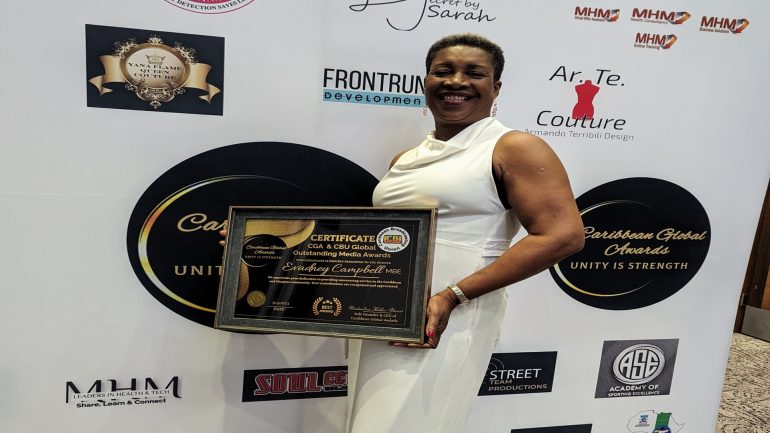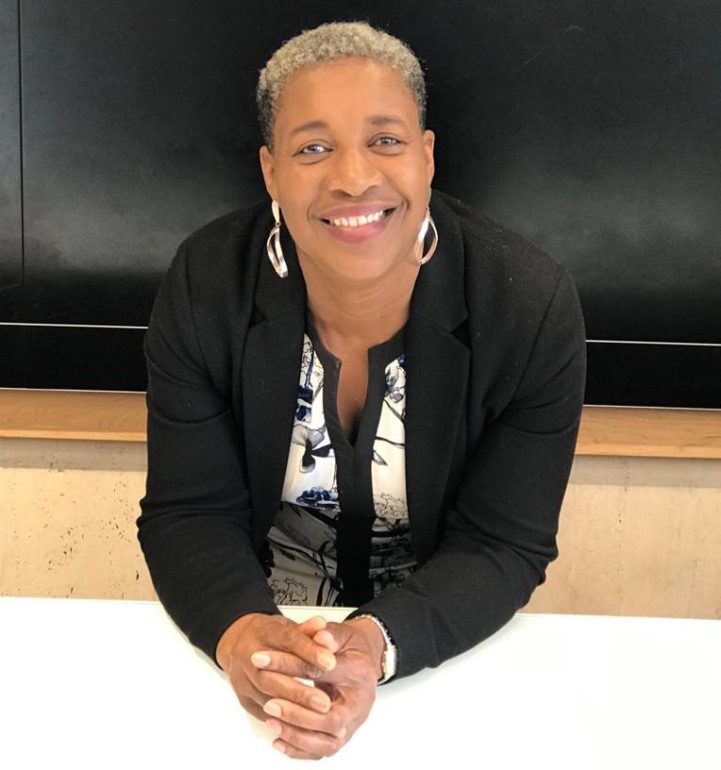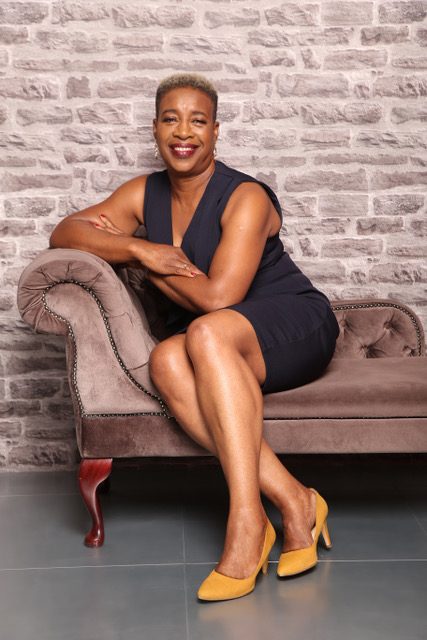Featured
Challenges Persist in Media Access for Black people – An Interview with Evadney Campbell, MBE.
Born in Jamaica and Raised in England: The Journey of Evadney Campbell
Media access remains a persistent challenge for Black communities in England. Despite advancements in digital platforms, Black voices often face systemic barriers in visibility, representation, and funding within mainstream media. Opportunities to tell their own stories — with accuracy, depth, and ownership — remain limited. This makes independent platforms and strategic media partnerships not just important, but essential.
Evadney Campbell’s life journey from Jamaica to England at the age of 11 was a study in contrasts. Her early memories of a joyful childhood in Jamaica were juxtaposed with the socio-realities that she faced in England. It was during her adulthood that she became aware of race relations, a reality that not only shaped her determination to succeed but also fueled her commitment to empowering others.

With a remarkable career in journalism at the BBC, Evadney Campbell had the privilege of exploring the world of academia. “My journey took an interesting turn when I was introduced to the University of Bedfordshire by a former colleague of mine who was also a lecturer at the same institution. At that time, I was already a lecturer at the London College of Communications, a part of UCL…”, she said.
During her time as a BBC journalist, she passionately advocated for greater diversity and inclusion, particularly in academic settings. “I felt the need for inclusion at the University of Bedfordshire, where most home students are from low-income families.”

Photo of Evadney Campbell
The Influence of Personal Connections and the Pursuit of Opportunities
Evadney Campbell recognises the profound impact of personal connections and influences in accessing opportunities. As an inspirational figure, Evadney advocates for Black people’s representation within the media industry.
“I’m getting into a lot of positions and opportunities from the people that I know, which is a real shame for us as Black people and as minority individuals. Unless you know people who have influence or access, opportunities remain limited “, she expresses. “I’m grateful to those who help me during my journey…”, she added.
The Legacy of the Windrush Generation: A Continuing Struggle
As a descendant of the Windrush generation, Evadney Campbell passionately believes in the importance of understanding the experiences of those who arrived in 1948 to help rebuild the country. She explains, “The struggles of this generation and their descendants are still prevalent, particularly concerning racism and discrimination.” While some aspects of these challenges have evolved, issues related to discrimination persist.
A New Dawn: Hope in the Younger Generation
In the face of persistent challenges, she finds hope in the younger generation. “…with the wealth of available resources currently, aspiring young journalists can make a huge difference, overcome barriers and make their mark in the media industry…”, indicated Evadney.

A New Dawn: Hope in the Younger Generation
In the face of persistent challenges, she finds hope in the younger generation. “…with the wealth of available resources currently, aspiring young journalists can make a huge difference, overcome barriers and make their mark in the media industry…”, indicated Evadney.
Essential Skills for Aspiring Media Professionals
Evadney Campbell’s status as an award-winning media trainer and owner of Shiloh PR https://shilohpr.com/ underscores her expertise in the field. She imparts valuable insights into the essential skills that aspiring media professionals should develop. She places great emphasis on curiosity and an interest in people, noting that everyone has a unique story worth telling. Furthermore, Campbell underlines the significance of integrity, stating, “I respect people’s stories and believe in the importance of integrity. These are essential qualities that every aspiring journalist should embody.”
You may like
Africa
Guinea-Bissau’s Political Storm: What the Military Interference Signals for ECOWAS and the Region
Guinea-Bissau has once again been thrust into political uncertainty after Brigadier General Denis N’Canha announced a military takeover, declaring that the armed forces have assumed full control of the country. President Umaro Sissoco Embaló was placed under house arrest, in a dramatic escalation of tensions already heightened by a fiercely disputed presidential election.
The development is the latest reminder of how fragile governance becomes when democratic institutions are weak, political actors lack trust, and corruption entrenches itself at every level of state functioning.
A Coup Amid a Contested Election
The military intervention comes in the middle of a chaotic electoral environment.
Both Fernando Dias, a relatively unknown 47-year-old candidate, and incumbent Umaro Sissoco Embaló declared victory before the official results were expected.
Dias, backed by influential former Prime Minister Domingos Simões Pereira, told supporters in Bissau that he had won outright and that no second round would be required. Embaló’s campaign issued its own declaration of victory soon after, urging the opposition to accept the results.
In a country where political parties frequently accuse each other of fraud, early self-declarations of victory have become a destabilising norm. But this time, the military stepped in.
What the Military Announced
In its televised address, the military leadership made several sweeping claims and unilateral decisions:
Key Military Claims & Announcements
Accused politicians of collaborating with “drug lords” to destabilize the country
Claimed attempts had been made to manipulate the electoral process
Announced the removal of President Embaló
Declared the suspension of the electoral process
Ordered the closure of all land and maritime borders
These accusations highlight long-standing concerns about Guinea-Bissau’s reputation as a transit hub for drug trafficking, often referred to as Africa’s “narco-state.”
Such narratives are frequently used by political and military actors to justify interventions—but they also reflect real governance vulnerabilities.
Structural Weaknesses Behind the Crisis
Guinea-Bissau has endured repeated coups and attempted coups since independence in 1974. Much of this instability stems from:
Weak state institutions
Deep political fragmentation
An entrenched military elite that views itself as the ultimate arbiter of national authority
Historic mistrust between political parties
Persistent allegations of corruption and drug trafficking
President Embaló’s own record has been contentious. He dissolved the opposition-controlled parliament after the 2019 and 2023 legislative elections and prevented it from sitting since December 2023, following a previous attempted coup. His mandate was also extended by the Supreme Court, adding more controversy.
Regional Implications: Why This Crisis Matters Beyond Guinea-Bissau
The coup in Guinea-Bissau doesn’t exist in isolation—it fits into a broader pattern reshaping West Africa’s political landscape.
Here are the key regional consequences:
1. A New Link in the West African “Coup Belt”
Over the last four years, the Sahel and coastal West Africa have witnessed a wave of military takeovers:
Mali 🇲🇱
Burkina Faso 🇧🇫
Niger 🇳🇪
Guinea 🇬🇳
Attempted coups in Sierra Leone 🇸🇱
Persistent instability in Senegal 🇸🇳 earlier in 2024
Guinea-Bissau now risks becoming the latest link in this “coup belt”—raising alarms for ECOWAS and the African Union.
2. ECOWAS Credibility Is Again on the Line
ECOWAS, already weakened after its failures in Mali, Niger, and Burkina Faso, must now respond to yet another unconstitutional transition.
If the bloc fails to act decisively, its deterrence capacity will be further eroded—potentially encouraging other fragile states in the region to drift toward military interventions.
3. Risks of Regional Criminal Networks Expanding
Guinea-Bissau has long been a trafficking corridor between Latin America, West Africa, and Europe.
A power vacuum or prolonged instability could:
Strengthen transnational criminal networks
Increase drug trafficking
Destabilise neighbouring Senegal 🇸🇳 and Guinea 🇬🇳
Create opportunities for armed groups operating in the Sahel
This possibility concerns regional governments and international partners alike.
4. Threats to Democratic Consolidation in West Africa
The contested elections, competing claims of victory, and subsequent military intervention reinforce a dangerous message:
Elections alone do not guarantee democracy—trust in institutions does.
If political elites routinely bypass democratic processes, and militaries continue stepping in as “arbiters,” the region’s democratic trajectory will continue to slide backward.
5. Potential for Spill over Instability
Guinea-Bissau shares borders with:
Senegal, where tensions simmer in Casamance
Guinea, still recovering from its own military transition
Any prolonged instability could spill over into these neighbouring states—especially through arms flows, displacement, and economic disruption.
A Crisis That Demands Regional Attention
The situation in Guinea-Bissau is more than a domestic power struggle—it is a symptom of deeper structural weaknesses echoing across West Africa.
Weak institutions, contested elections, corruption, military interference, and the influence of transnational criminal networks create a volatile mix that threatens not just Guinea-Bissau’s governance, but the region’s stability.
As ECOWAS and the AU prepare their response, one thing is clear:
The future of democratic stability in West Africa will depend on how effectively these crises are managed—and whether institutions can be strengthened to prevent the next one.
Africa
Generation Z vs. the Establishment: Madagascar’s Youth Rewrite the Rules
Antananarivo, Madagascar — Colonel Michael Randrianirina has taken office as Madagascar’s new president, following the Gen Z-led uprising that precipitated a military takeover in the country. The young generation’s protests, fuelled by frustration over poor public services, led to cabinet resignations and ultimately reshaped the political landscape.
The unrest began in late September 2025, primarily in the capital, Antananarivo, but quickly spread to other major cities.
Recurrent electricity outages and water-supply disruptions exposed longstanding infrastructure failures and deepened public dissatisfaction, particularly among the youth, who make up the majority of Madagascar’s population under 25.
Dubbed Gen Z Madagascar, the movement is largely composed of students, recent graduates, and young professionals. Social media platforms like Facebook and Instagram played a central role in organizing protests, sharing updates, and amplifying demands for accountability. Protesters also adopted cultural symbols such as the One Piece pirate skull-and-crossbones, signalling solidarity and defiance.
Despite government bans, large-scale demonstrations kicked off on September 25, 2025, leading to clashes with security forces. The UN estimates around 22 people were killed during the protests. Mounting pressure prompted the government to dissolve the cabinet under Prime Minister Christian Ntsay, but demonstrators escalated their demands, calling for President Andry Rajoelina to resign.
The turning point came when the elite military unit CAPSAT defected and sided with the protesters, enabling the coup in October 2025. With Randrianirina now sworn in, the nation enters a period of uncertain transition, with Gen Z activists closely monitoring whether the military takeover will result in substantive reforms or simply a change in leadership.
While the immediate crisis has subsided, protesters continue to demand reliable utilities, transparent governance, and protection of human rights. Amnesty International has called for investigations into the use of deadly force and the repeal of laws that criminalize protest.
Madagascar’s Gen Z has demonstrated that youth activism, digital mobilization, and coordinated civil action can reshape political realities—even in the face of entrenched power. The key question now is whether this momentum will lead to lasting change.
Africa
How A Tanzanian Woman Turned a Lockdown Idea into a Movement Empowering 12,000 Girls?
By Caleb Koyo | Africa in Motion-
Nairobi- Kenya
When classrooms closed during the COVID-19 pandemic, one Tanzanian woman turned crisis into opportunity. Four years later, her grassroots initiative is transforming the lives of thousands of girls nationwide.
A lockdown spark that lit a movement
When the pandemic forced schools across Tanzania to shut down in 2020, Dorcas Bahati Mgogwe saw more than just a disruption to education — she saw a generation of girls at risk of being left behind.
Raised by a single mother, Bahati knew firsthand how education can change the trajectory of a young woman’s life. But when her younger sister became a teenage mother, she saw how easily that opportunity could be lost.
“During COVID-19, I realised how urgent it was to offer mentorship, education, and reproductive health knowledge to girls,” Bahati recalls. “That’s how the Girls First Initiative (GFI) began.”
What started as informal conversations with young girls has since evolved into a nationwide movement reaching over 12,000 girls and young women across Tanzania.
Breaking barriers through dialogue
Tackling reproductive health education in conservative communities came with challenges.
“At first, people were suspicious,” Bahati says. “Parents and leaders resisted discussions about topics they found uncomfortable.”
To overcome that resistance, GFI adopted a community-first approach. The organisation held listening sessions, involved men and local leaders, and used real-life stories to build empathy.
“We earned trust by showing respect,” Bahati explains. “Over time, mindsets began to shift, and communities started to support us.”
From savings to sustainability
In the early days, Bahati had little more than determination — and her own savings. A small grant from Crew4All provided a vital boost, while schools and local leaders offered space and logistical support.
“That early trust was everything,” Bahati reflects. “It opened doors and helped us later attract partners like the UNDP.”
Today, GFI delivers scholarships, digital literacy classes, entrepreneurship workshops, and reproductive health sessions. Through its Girls Network Tanzania, the organisation connects young women with mentors and leadership opportunities, helping them take charge of their futures.
Bridging the digital divide
Access to technology remains a significant barrier, particularly for girls in rural areas. To bridge that gap, GFI developed Msichana Kwanza (“Girl First”) — an offline learning and mentorship platform that delivers educational resources to remote communities.
“We can’t talk about empowerment without access,” Bahati says. “Msichana Kwanza ensures no girl is left behind, even without the internet.”
Balancing grassroots needs with national policy
GFI’s success lies in its ability to blend community engagement with institutional partnerships.
“We start by listening,” Bahati says. “We co-create programmes with local leaders and formalise partnerships through memorandums of understanding with schools, health providers, and local authorities.”
This approach ensures the organisation’s work aligns with Tanzania’s national strategies for education, gender equality, and youth empowerment.

Financial independence for women
Like many non profits, GFI faces the challenge of sustaining its work financially. To tackle this, Bahati launched Taa ya Maisha (“Light of Life”), a one-year vocational and entrepreneurship programme for marginalised women.
“It’s designed to reduce donor dependency,” she says. “We equip women with business and financial literacy skills so they can become self-sufficient and support others.”
The resilience behind the mission
As a young woman leader, Bahati has faced her share of scepticism.
“I’ve been underestimated,” she admits. “Some male leaders question my capacity because of my age. But I draw strength from my mother’s resilience and from the girls we serve. Every challenge only fuels my determination.”
Empowering Africa’s next generation
For Bahati, the future of Africa lies in its girls.
“When you invest in girls, you invest in entire communities,” she says. “GFI’s goal is to build confidence, leadership, and opportunity so girls can drive Africa’s growth. Empowering girls isn’t charity — it’s strategy.”
From a lockdown idea to a national movement, Dorcas Bahati Mgogwe’s Girls First Initiative shows how one determined voice can inspire a generation — and redefine what empowerment looks like in Africa.


Guinea-Bissau’s Political Storm: What the Military Interference Signals for ECOWAS and the Region

Africa at COP30 in Belém, Brazil: Leading the Fight or Left Behind Again?

Tanzania’s President Suluhu: Between Reform and Repression

ECOWAS at 50: President Obasanjo Warns of Declining Trust and Growing Divisions at Oxford Forum

Why Are More Black Britons Applying to Oxford University?





